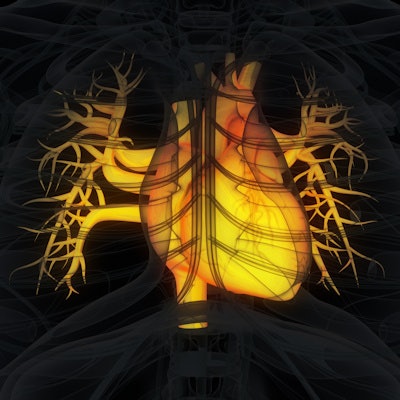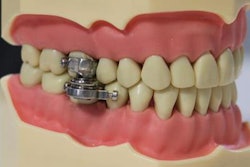
Patients who undergo dental treatments prior to cardiovascular surgeries do not face an increased risk of oral health complications, medical adverse events, or death. The findings were published on July 13 in the Journal of Oral and Maxillofacial Surgery.
Medical adverse events and deaths were comparable in those who received dental intervention prior to heart surgery and those who did not receive dental care, the authors wrote.
"Elimination of oral infection prior to [cardiovascular surgery] does not increase the risk of morbidity or mortality," wrote the group, led by Dr. Reeva Mincer, of the University of California, Los Angeles (UCLA) School of Dentistry.
In most patients, a cardiovascular workup includes a comprehensive dental examination. Patients are examined for dental abscesses, gum disease, and dental infections. If those conditions are not treated prior to surgery, bacteria from these infections could enter a patient's bloodstream, settle in a surgical area, and cause serious complications.
Though such workups are common practice, evidence that outlines the benefits of performing dental treatment prior to cardiovascular surgery is limited, according to the researchers. Therefore, they sought to determine whether dental treatment prior to heart surgery was linked to a heightened risk of dental complications, medical adverse events, and death.
To gauge the risk of adverse events, the study authors conducted a retrospective medical record review of 738 patients who were admitted at the University of California, Los Angeles Ronald Reagan Medical Center between January 2011 and December 2020 for cardiovascular surgery and underwent dental consultations prior to the procedure. The patients were divided into four groups.
- Group A included 265 patients who were deemed dentally unhealthy and underwent surgical dental care.
- Group B consisted of 14 patients who were considered dentally unhealthy and underwent nonsurgical dental treatment.
- Group C included 29 people who were dentally unhealthy but did not receive recommended treatment.
- Group D included 430 patients who had good dental health and needed no intervention.
Then, patient records were evaluated for dental complications, medical complications, and death that occurred within 31 days of their heart surgeries, which included surgical valve replacement, transcatheter vein replacement, coronary artery bypass graft, or other cardiovascular procedures.
Overall, 20% (148 patients) experienced dental or medical complications or died. However, those heart surgery patients who had dental care and experienced complications or died did not differ significantly from those who had adverse events and did not undergo a dental procedure, the authors wrote.
| Dental complications, adverse events, and deaths in heart surgery patients | ||||
| Complications | Dental health and treatment status of patients | |||
| Dentally unhealthy, received surgical dental treatment
(n = 265) |
Dentally unhealthy, received nonsurgical dental treatment
(n = 14) |
Dentally unhealthy, received no dental care
(n = 29) |
Dentally healthy, required no dental care
(n = 430) |
|
| Number of dental complications within 31 days of dental consultations | 14 (5.3%) | 0 | 0 | 0 |
| Number of medical complications within 31 days of dental consultation | 22 (8.3%) | 1 (7.9%) | 1 (3.4%) | 37 (8.6%) |
| Number of deaths within 31 days of dental consultation/care | 10 (3.8%)/12 (4.5%) | 0 | 1 (3.4%) | 16 (3.7%) |
| Number of deaths within 31 days of heart surgery | 13 (4.9%) | 0 | 1 (3.4%) | 20 (4.7%) |
Nevertheless, the study had a limitation. It is possible that the patients who fell into the category of not receiving recommended dental treatment prior to heart surgery sought treatment somewhere else and that the information was not added to their medical records, the researchers noted.
Additionally, patients who undergo dental procedures prior to heart surgeries should be followed closely to ensure early detection and management of any potential complications, the authors warned.
"There is no increased risk of major medical adverse events or death when dental treatment is provided prior to [cardiovascular surgery] in order to eliminate oral infection when compared to those not receiving dental treatment," Mincer and colleagues concluded.




















